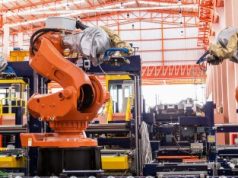PLM or process lifecycle management processes refer to managing the entire lifecycle of a product from its inception, engineering design, manufacture to service and disposal of the manufactured products.
PLM brings together people, data processes and business systems and provides a product information backbone for companies and their extended enterprise.
The five long-term objectives that should be considered in production systems are:
-
- Cost Reduction
- Improved Productivity
- High end-product Quality
- Flexibility
- Sustainability
Finding the Bliss point:
Finding a balance between various stages and processes implemented in PLM processes can be tricky as the stages however subsequent, have components which are quite different from each other.
We need to find a set of techniques which are lean, green and sustainable. Hybrid Processes (both additive and subtractive) in combination with the efficiency bench mark lean processes like multi-directional product production and scaling would be a beginning point. Using eco-friendly models, renewable and non-conventional energy resources would also need to be incorporated in this strategy.
It is quite complex to achieve a perfect balance but this elusive bliss point will bring about achievable efficiency standards and lend competitive edge to the corresponding organization.









